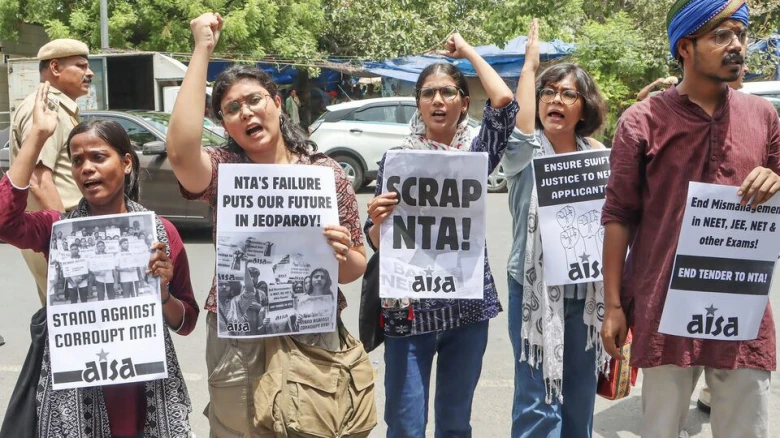The law provides some protection for candidates appearing for exams, as they will be subject to the existing unfair means policies of the examination...
Digital Desk: The central government on Friday officially notified the Public Examinations (Prevention of Unfair Means) Act, 2024, a robust legal framework aimed at curbing malpractice in public examinations and common entrance tests across India. This legislative move follows widespread controversy surrounding alleged malpractices in high-stakes exams such as NEET and UGC NET.
Passed by Parliament in February 2024, the Act introduces stringent penalties to deter cheating and organized exam fraud. Individuals caught cheating can face imprisonment of three to five years, while those involved in organized cheating syndicates, including examination authorities or institutions, risk five to ten years of imprisonment and a hefty fine of at least Rs 1 crore.
The Act also empowers authorities to attach and forfeit properties of institutions implicated in organized paper leak crimes, with costs of the examination being recovered from such institutions. This stringent measure is designed to hold organizations accountable and deter systemic corruption.
Notably, the law provides some protection for candidates appearing for exams, as they will be subject to the existing unfair means policies of the examination conducting authorities rather than the harsh punitive measures outlined in the new Act.
"Unfair means" under the Act encompass a wide range of activities, including leaking question papers or answer keys, aiding candidates through unauthorized communication, tampering with computer networks, impersonating candidates, conducting fake exams, issuing fake documents, and manipulating merit lists or ranks.
The offenses under this Act are non-bailable, and investigations are to be conducted by officers not below the rank of Deputy Superintendent of Police or Assistant Commissioner of Police. Furthermore, the central government retains the authority to refer any investigation to a central agency, ensuring that high-profile cases can be handled with the necessary expertise and resources.
The Act covers examinations conducted by major bodies such as the Union Public Service Commission (UPSC), the Staff Selection Commission, Railways, banking recruitment exams, and all computer-based exams managed by the National Testing Agency (NTA).
Union Minister Giriraj Singh, in a post on X (formerly Twitter), announced the implementation of the Act, stating, "The Public Examinations (Prevention of Unfair Means) Act, 2024—the anti-paper leak law for examinations for central recruitment and entrance into central educational institutions—came into effect on Friday, June 21."
This legislation marks a significant step towards ensuring the integrity of India's examination system, aiming to restore public confidence and uphold the meritocratic principles essential for fair and equal opportunities in education and employment.

Leave A Comment